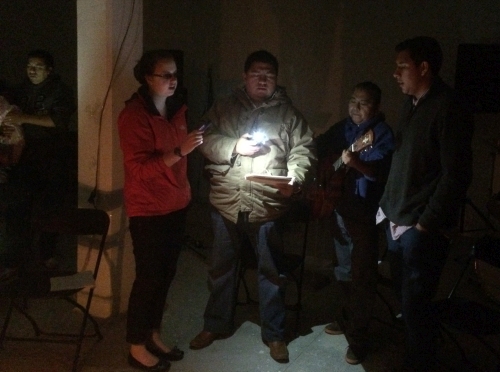Bible Versions and Future Training

Shari took this wonderful photo of a little visitor we’ve had in our yard lately. I told her that if she was going to talk to him, she would have to give him a name. I suggest Herbert.
That has nothing in particular to do with this post, except that you may be wondering why I haven’t been posting much. In a way, I suppose, it’s the usual excuse – an extra busy time, for a number of reasons!
Sometimes things move along quickly – more often progress seems slow. But God continues to work!
Recently I enjoyed teaching Sunday school. We’ve been doing some random themes in Sunday school – things that we think are needed, or things people ask for. This was one of the latter – a series of two classes on Bible translations.
I’ve taught the “Where did the Bible Come From?” seminar in this church, though it’s already been a few years. So I designed these classes as a bit of an extension on the teaching about Bible versions.
We laid some of the theological foundations in the first class. And then talked about some specifics in the second class. We talked specifically about how manuscripts are used to translate, and then issues of translation itself – translating at different levels, more literal or more of a paraphrase, and so on.
In Spanish, and in English too, actually, there have been more translations in recent years that are put out by certain sects that are less an attempt to be faithful to the original, and more of an attempt to fit a certain theology or certain ideology. Some of these have been around a long time, but there are others that are more recent. I think it’s more of an issue than it used to be when I first started teaching on this topic.
That was last Sunday – and actually, that will be our last adult Sunday school class for a while. We’re anxious to prioritize and put our energy into what’s most needed and most effective. So we’re going to be looking at some special training for certain groups in the church. We’ll see how that goes.
Although adult Sunday school is taking a haitus, children’s Sunday school is continuing! Shari is going to be involved a little more again with teaching the kids, which includes lessons and things like activities and verse memorization. They’re learning about the life of Jesus right now.
We ended our classes on Bible versions with this little text from Colossians, which reminds us of our responsibility when it comes to the Bible:
And let the peace of Christ rule in your hearts, to which indeed you were called in one body, and be thankful. Let the word of Christ dwell in you richly, with all wisdom teaching and admonishing one another with psalms and hymns and spiritual songs, singing with gratefulness in your hearts to God. And whatever you do in word or deed, do all in the name of the Lord Jesus, giving thanks to God the Father through Him.
Colossians 3:15-17














